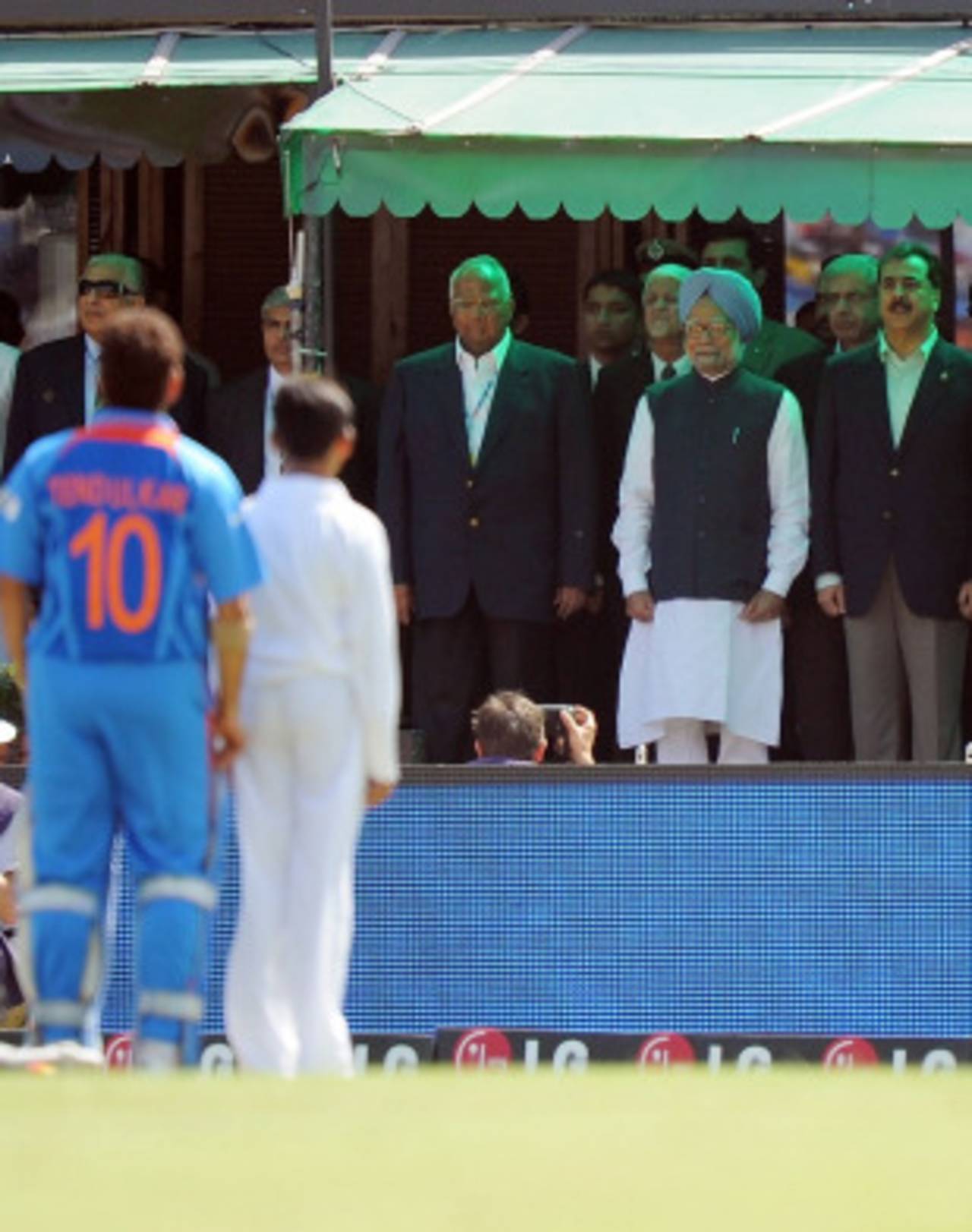Here's the most definite 'learning' from this World Cup: lets keep the heads of government and state away from it. If the India v Paksitan semi-final featured two chatty prime ministers, the final is being witnessed by two heads of state, the presidents of India and Sri Lanka. With all due respect to the Excellencies, ask the two policemen who walked in to one of the old city's Irani cafes for tea and biscuits just after 10am. They had been on duty since 6am and would be working till the game finished and the crowds cleared - an 18-hour day. They were there because an area around the stadium was to be 'sanitised'. Read made inconvenient for the general public and the Wankhede has to be a presidential-size inconvenience.
So spectators were told to be in the stadium by 1.30 pm because the ground was going into lockdown after that. Marine Drive, an iconic stretch of curving road that the stadium is built on, will have no traffic for a while, except the presidential entourages. The cops in the Irani cafe sighed because, to use a cricketing cliche, this was not going to be “a normal match”. One of them said, “So much bandobast.” It's an old-fashioned, Raj-kind of Urdu word now found in pucca English dictionaries and it means organisation or arrangement.
The only way cops on bandobast duty outside the Wankhede will follow the match, one of them said, was to listen to the noise of the crowd. They will have no access to giant screens that will be set up in even the most crowded neighbourhoods and they have been forbidden from carrying mobile phones so their friends and family can't even text them the scores. All police communication is to be done in the old-fashioned way – via walkie talkie. Because of the presidents, of course.
In all this maybe there lies the next brownie-earning political ploy: to show your love for the common man, don't go to big games. Stand outside a prime ministerial residence or presidential palace wearing a team shirt and wave for a photo opp.
This World Cup final is actually being played on what the host city still calls a working day. There were people streaming outside the Marine Lines railway station, but walking away from the Wankhede Stadium as they were going to their jobs. Even that early, the spectators going to the stadium could be identified from 2 km away as they walked carrying nothing but their flags. There were people selling giant flags at traffic signals, or at spots where, in this north-south city, people had no option but to pass them. On the footbridge leading into the gate at the Wankhede, there stood a man who understood what 'sanitisation' and 'presidential lockdowns' really meant. He had a bucket at his feet, full of mineral water bottles and soft drinks. He knew that standing in queues waiting to get checked and frisked before entering the ground for the World Cup final, people would be tired and thirsty. Ambush marketing be damned, this was Mumbai. There's always a way to make a buck.
